Standing in the black box nine days until opening night, he’s mad at his actors.
He makes them look him in the eyes and say their lines again and again. He slams a chair so hard into the floor that he cuts his hand.
But he is not angry because his actors are doing badly. Senior Daniel Andrade is angry because he wants to push his actors to “outperform him.”
“My actors were just saying the line,” Andrade said. “In theater, you have to have an intention behind the line. I was making myself seem mad so they could feel that and give a reaction. It took a couple tries, but eventually it got to a point where I was like, ‘This is perfect.’ They outperformed the way I would have done the scene. It made me feel like I did my job as a director.”
Andrade and senior Emma Kolah co-directed the Red Bird Productions junior varsity play “Alice in Wonderland” by Brainerd Duffield from May 1-3 in the black box theater. Both seniors worked this year as teacher assistants during RBP’s third-period junior varsity class, assisting head theater director Kayla Boffone and technical director Allison Underhill in directing the majority-underclassmen who make up the class.
The idea to enlist the two TAs as the show’s directors came as Boffone prepared to go on maternity leave in mid-February, leaving Underhill as the only theater director.
“We knew that JV was going to do a spring show, and Ms. Boffone was like, ‘Wait, we have these two senior TAs who are honors theater students who need directing hours,’” Underhill said. “‘Why don’t we just have them direct a show?’ And I was like, ‘Oh my goodness, that’s brilliant.’”
In early February, Underhill and Boffone pulled Andrade and Kolah into their office and asked them how they would feel about directing “Alice in Wonderland” for the JV show.
“Daniel and I just looked at each other,” Kolah said. “We were shocked and confused because we were like, ‘This hasn’t happened before.’ But both of us immediately started thinking about what we wanted to do with the show. We were both really excited.”
Andrade was especially glad to get to direct the show with Kolah.
“To know I was going to be directing it with someone who I really looked up to and someone who I really admired and really enjoyed working with made it so I knew that regardless of how the outcome would be, it would be good,” Andrade said.
A couple weeks later, when Andrade and Kolah announced to the JV class that they would be directing “Alice in Wonderland” for their show, the students screamed and “bounced off the walls.” Sophomore Sierra Little, who played the titular Alice, was particularly excited to see what the two would do with such a “huge show.”
“I was especially relieved because I knew Boffone was leaving for maternity leave and I was worried Underhill was gonna be overworked with [the UIL show, ‘Bob: A Life in Five Acts,’] and this too,” Little said. “When I found out that Emma and Daniel were directing it, I was like, ‘Wow, that’s an amazing solution.’ I was honestly so happy that they were directing because I’ve never been in a show that Daniel or Emma directed, and I was excited to see their style and how they were going to put on this incredible piece. Alice is a story that everyone knows so well, and they had to do it in a different way.”
From the moment he put the script in his backpack, Andrade devoted to the show “every single ounce of a thought that crossed his mind.” He read the script multiple times so he could fully understand the story of Alice and decide how he wanted the story to be portrayed.
“To be honest, I’m not the brightest reader,” Andrade said. “I hate reading, but I love reading scripts. Something about the storytelling in a script captivates me. As I’m reading it a couple times, I start to incorporate visualizations on how certain scenes would play out, how certain blocking would be and how the set would look.”
Starting the rehearsal process presented a distinct challenge to Andrade and Kolah. While in previous shows they worked off production concepts built by theater directors, for “Alice in Wonderland,” they had to “start from nothing.” Kolah focused on the technical aspects of the show while Andrade concentrated on the acting.
“You don’t realize how difficult it is to start tech for a show from nothing,” Kolah said. “You have to build a concept and formulate things, and so I think at the beginning it seemed really vague.”
Boffone told the student directors that she wanted them to take a “kind of creepy, unsettling” approach to the show to deviate from the traditional fairytale story of Alice. Andrade and Kolah used this theme to guide them into creating a broader concept for the show. After announcing the show to the JV class, Kolah presented a Pinterest board to the cast and crew, pitching her and Andrade’s ideas.
“The concept of the show applies to everyone: light, sound, props, but it also applies to the actors and how they’re going to do their characterization,” Kolah said. “We definitely kept with that creepy aspect, but now we have gone more into how the Queen of Hearts affects all of these characters in Wonderland. How is her tyranny an overarching feature of Wonderland, and how have the characters grown and reacted to that? I think we did a really good job of creating this really unsettling atmosphere that exists in both the tech aspects as well as the actors’ characterization.”
When working with his actors, Andrade realized that while varsity students are quick to run with an idea, JV students are more hesitant to be confident in their choices. This led to Andrade having to sit down with his actors and talk to them about their characters. He showed them how to evolve their character arcs so they could “feel that sense of euphoria” of translating these arcs to the audience.
“It takes a lot of personal connection and a lot of one-to-one moments where I can really connect with the student,” Andrade said. “I have to really drill in those ideas so that everyone is really connected and staying as a unit. If you come off with too much authority, they’re just going to see you as someone they really don’t want to take notes from. It’s still something I’m working on.”
Kolah said that giving the actors and technicians input on the show helped keep them involved in the production process. Instead of just coming to class, JV students saw third period as official rehearsals for their second semester assignment of putting on “Alice in Wonderland.” Kolah and Andrade had to ensure that each rehearsal they were effectively communicating their vision.
“I learned that it takes time,” Kolah said. “You can’t get someone to understand what’s going on in your brain just by showing them a picture and talking to them once. You have to work with people and grow with them and understand where they’re coming from and also be able to accept what they are limited by and what they would like to expand on.”
Kolah was particularly impressed with the engagement and passion of her sound and costume designers. Kolah’s technical focus in the past has been props and lights, so technicians like sophomore and sound designer Connor Gary were pushed to explore even further in their respective areas of tech.
“One thing that the directors really wanted to do was stick with early 1900s English classical music,” Gary said. “But what they really wanted was for the sound to really add to the scenes. Not take away from the actors, but add and build upon that. At one point, I was listening to classical music at home for like three hours every night, just trying to find pieces that would work. The most challenging thing by far is being content with simplicity and understanding that you cannot overtake the act. A part of me still wants to find that right cue, that right sound, [but] that’s where part of me goes back to Emma with her vision. It helps me stay content with what I have.”
As the cast and crew approached tech week, Kolah and Andrade continued to work closely together to get the JV students show-ready. During third period, lunch and seventh period, they would sit together and talk about what they wanted certain scenes to look like. They filled one of the whiteboards in the tech room with drawings to visualize the location of a moving platform that represented a chessboard in the show.
“The two of them were always prepared and always ready for the day’s rehearsal,” Underhill said. “That’s just such an important thing for a director to be. For young directors such as Emma and Daniel, it was really wise of them and benefited them and the JV students that they were so prepared.”
The two directors found that their directing styles and personalities complemented each other perfectly. They operated as a unit based on mutual trust, and where Andrade’s thoughts became sporadic, Kolah was grounded and never shut Andrade’s ideas down. Underhill described their collaboration as “magical.”
“I’m an overthinker,” Andrade said. “The amount of ways that I’ve thought of how certain scenes could play out kind of overstimulates my brain at times. I feel like that’s where Emma really shines in our co-director relationship. Working with Emma is like making pasta. You throw the pasta at the wall, and if it sticks, you know it’s ready. I’m throwing my ideas to Emma, and the moment we land on something, we’re running with it.”
Kolah said she feels that she and Andrade know each other better from working on “Alice in Wonderland.” They saw the show as a senior thesis, a way to express and experiment with the best of their theater experiences.
“I met Daniel last year for the first time in ‘Airness,’” Kolah said. “We weren’t really close, but now I feel like we share the same brain. I feel like we are professional partners. It’s a different relationship than just doing theater with your friends. Daniel and I are working together to create something completely new that is entirely in our hands.”
After rehearsing 50 minutes a day, five days a week for 12 weeks, it was time for “Alice in Wonderland” to open to the public.
“At that point, we had already seen the show so many times,” Kolah said. “I think both of us felt like ‘You’ve seen this thing so many times, you know it,’ but then opening night was still different. During the show, I was looking around at people’s reactions and everybody was so invested and smiling the entire time. That was just so rewarding to see.”
Opening night for Andrade felt as though his work was being judged and critiqued.
“Art stops being yours the moment you display it,” Andrade said. “It becomes the property of the viewer and no longer the property of the creator. To be honest, it was kind of weird because the whole day, although I knew it was opening night, I wasn’t anxious. It felt like a show I was just watching.”
On the second night of the show, the JV students gifted their directors a card signed by the cast and crew showing them their gratitude. When the show closed Saturday night, Andrade and Kolah put Wonderland to rest with a bittersweet note.
“I’m glad people get to see what I took part in, but at the same time, it’s a little bit unsettling, the feeling of, ‘I could have done better had I been given more time,’” Andrade said. “But I was glad with the finished product, and I was really proud of everyone’s contribution.”
Andrade wants to be a theater teacher in the future. While he does not know when it will be, he plans on getting his theater education degree. Andrade is even considering having a “full circle moment” and returning to Bellaire to be the head director of Red Bird Productions.
“I want to pursue a life of theater, whatever that means, whatever that is,” Andrade said. “[Directing the JV show] has definitely been a helpful experience to teach me how I go about things and how I should change and how I should better myself in order to be the best teacher, performer and student I could possibly be.”
However, more than directing, Andrade values the role he has been able to play as a TA to the JV class this past school year.
“The students in that class mean more to me than directing any show,” Andrade said. “They remind me a lot of me when I was first starting off acting. I’m leaving a little bit of an impact. I’m already being a role model for them without them knowing. I want them to look up to me and see me as someone who they can trust and someone who knows what he’s doing, so that they trust the process. I’m trying to be that person that can be like, ‘I got you. Trust me.’ With directing Alice, I’m limited in what I can teach them because they are limited by my own vision.”
Kolah will be attending Trinity University in the fall with a double major in theater and business. She plans to work professionally in theater before starting her own design firm for production design.
“This is honestly such a blessing,” Kolah said. “I never expected to direct a full-length show. Getting to do that has been so rewarding. I’ve learned so much about directing and about guiding people to our unified vision. It’s helped solidify that this is what I’m passionate about.”
For Kolah, closing “Alice in Wonderland” felt like the end of a chapter.
“I think it was time,” Kolah said. “It didn’t feel rushed or anything. It felt like it was time for the show to go to rest. It was sad, but I was excited. I was excited because it was basically us turning the company over. It’s now JV’s turn.”
Underhill was “blown away” by Andrade and Kolah’s ability to match each other’s ideas and confidence in communicating their vision to their cast and crew. The two directors “brought the show to life,” all while being only seniors in high school.
“It was a really wonderful way to end our season,” Underhill said. “I’m just incredibly proud of those two and all of the junior varsity actors and technicians. My heart was bubbling over with pride.”



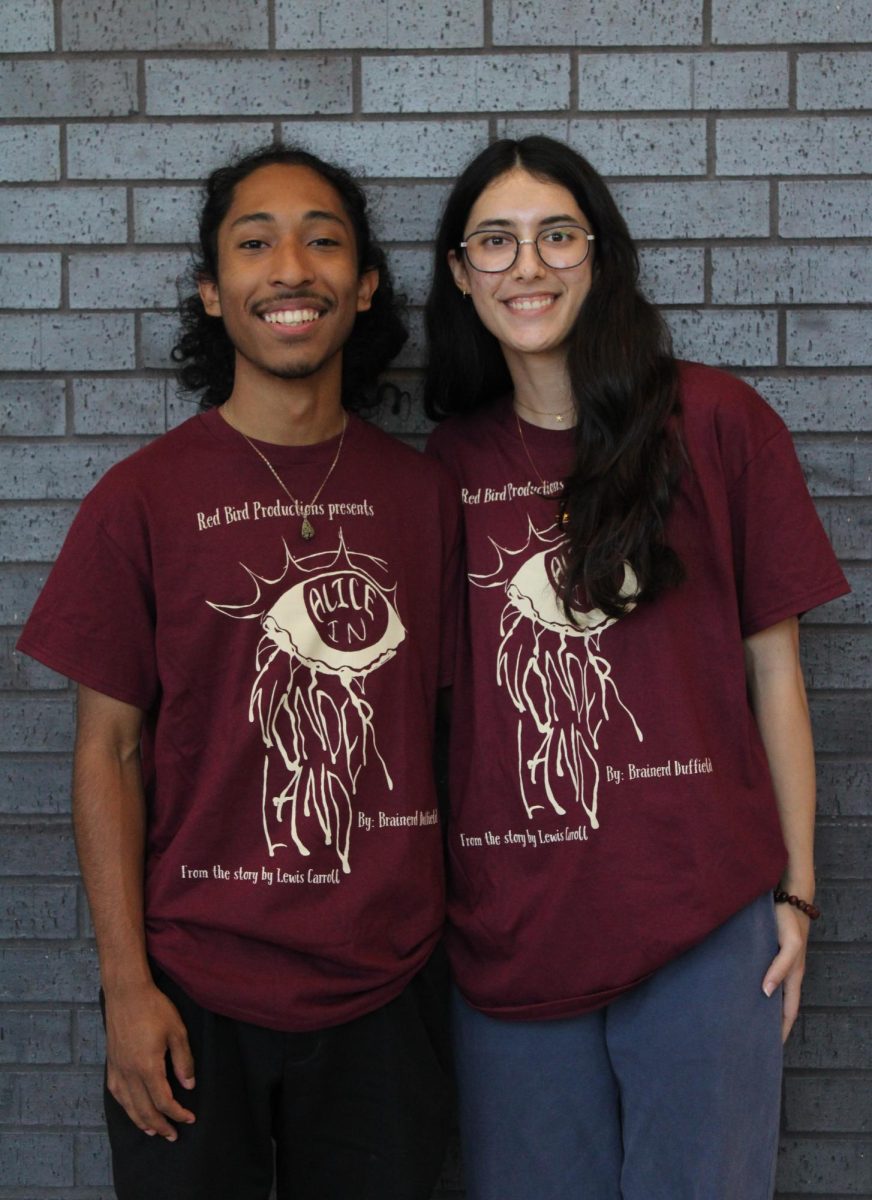
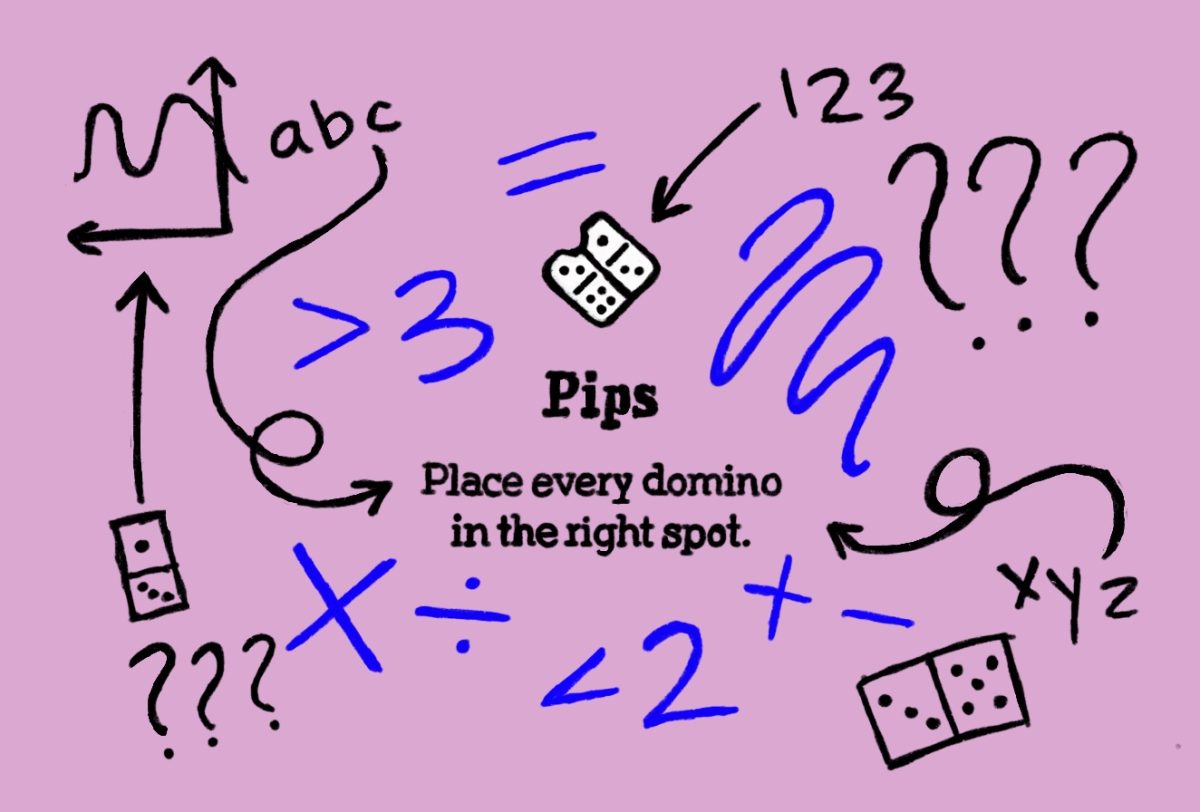
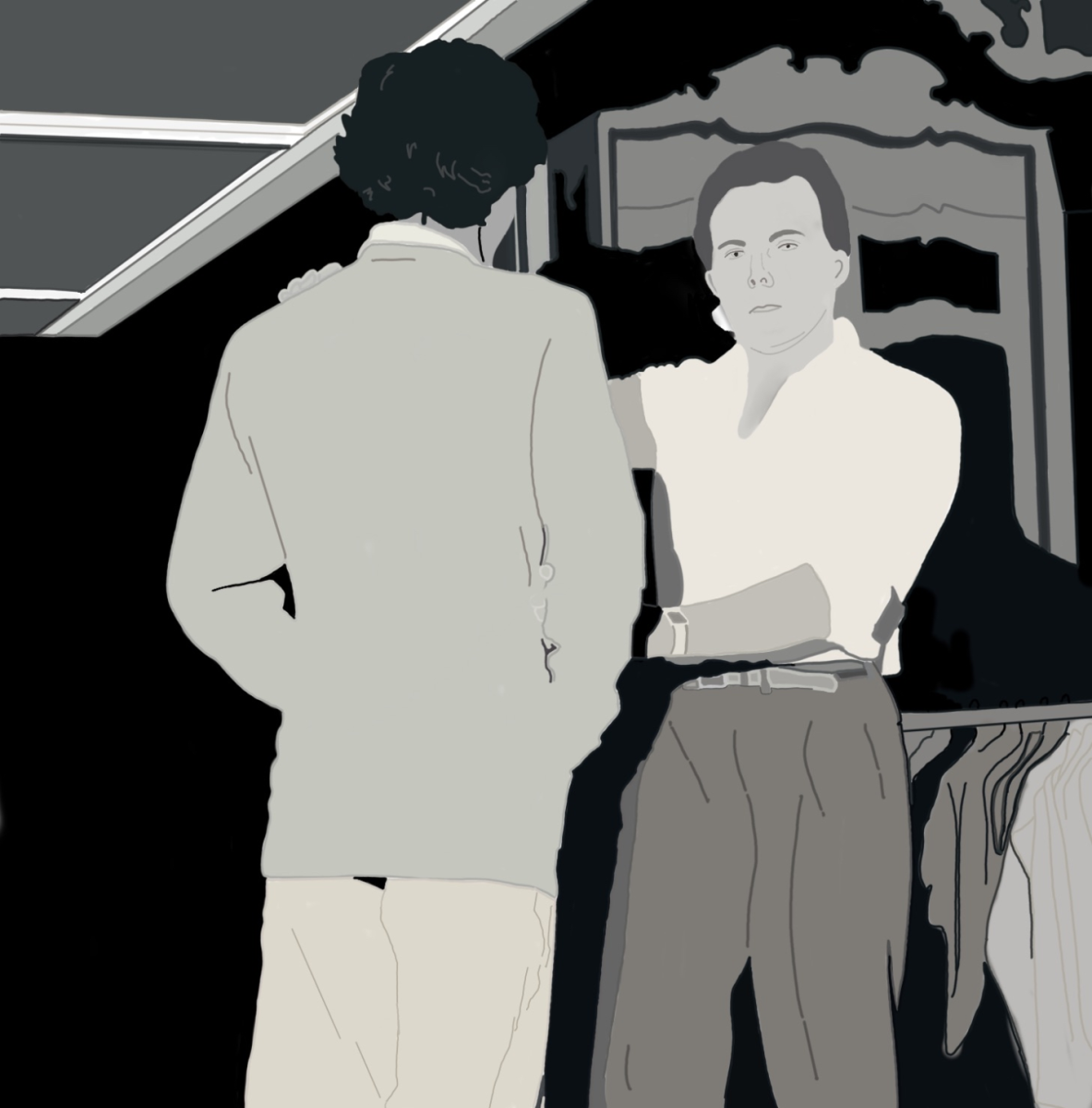
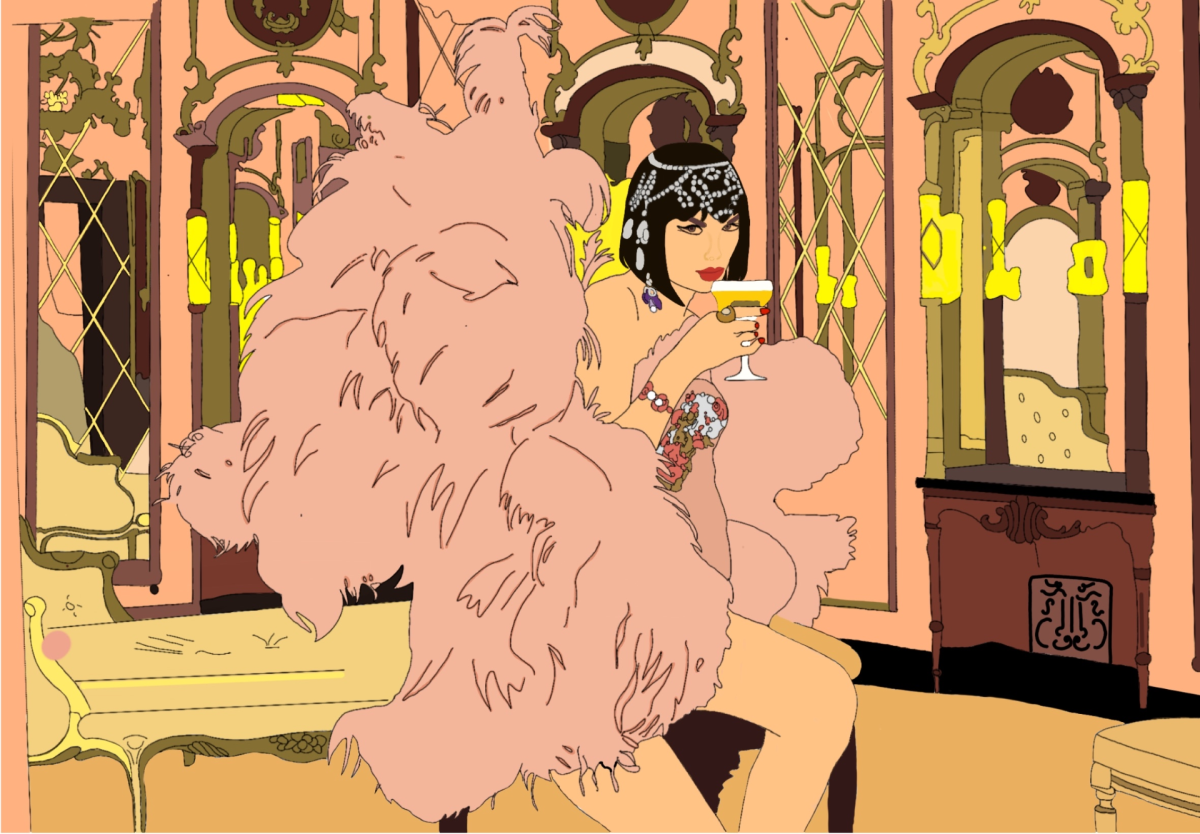
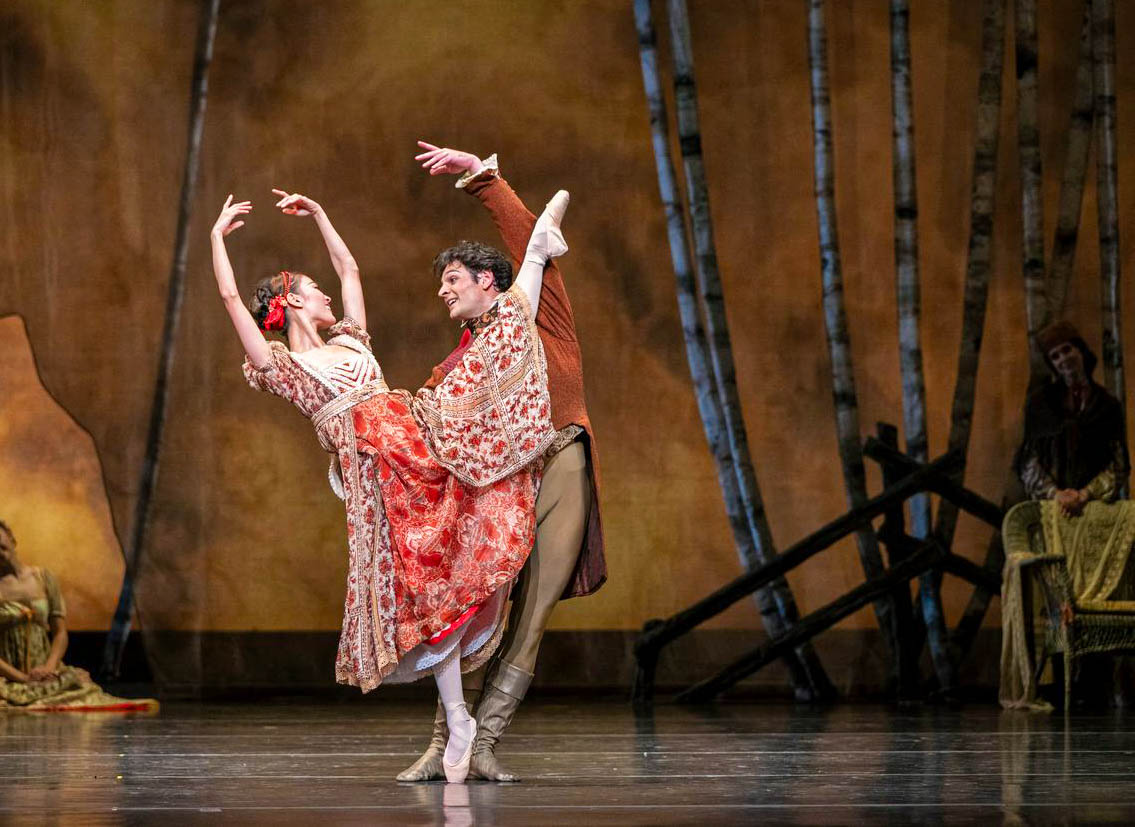

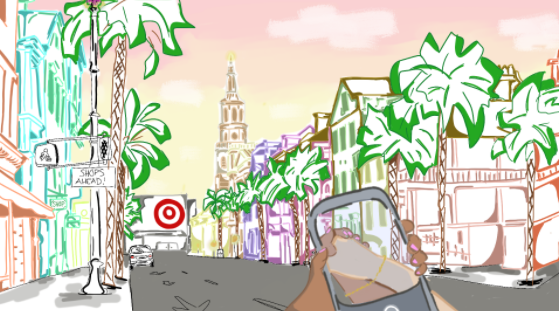
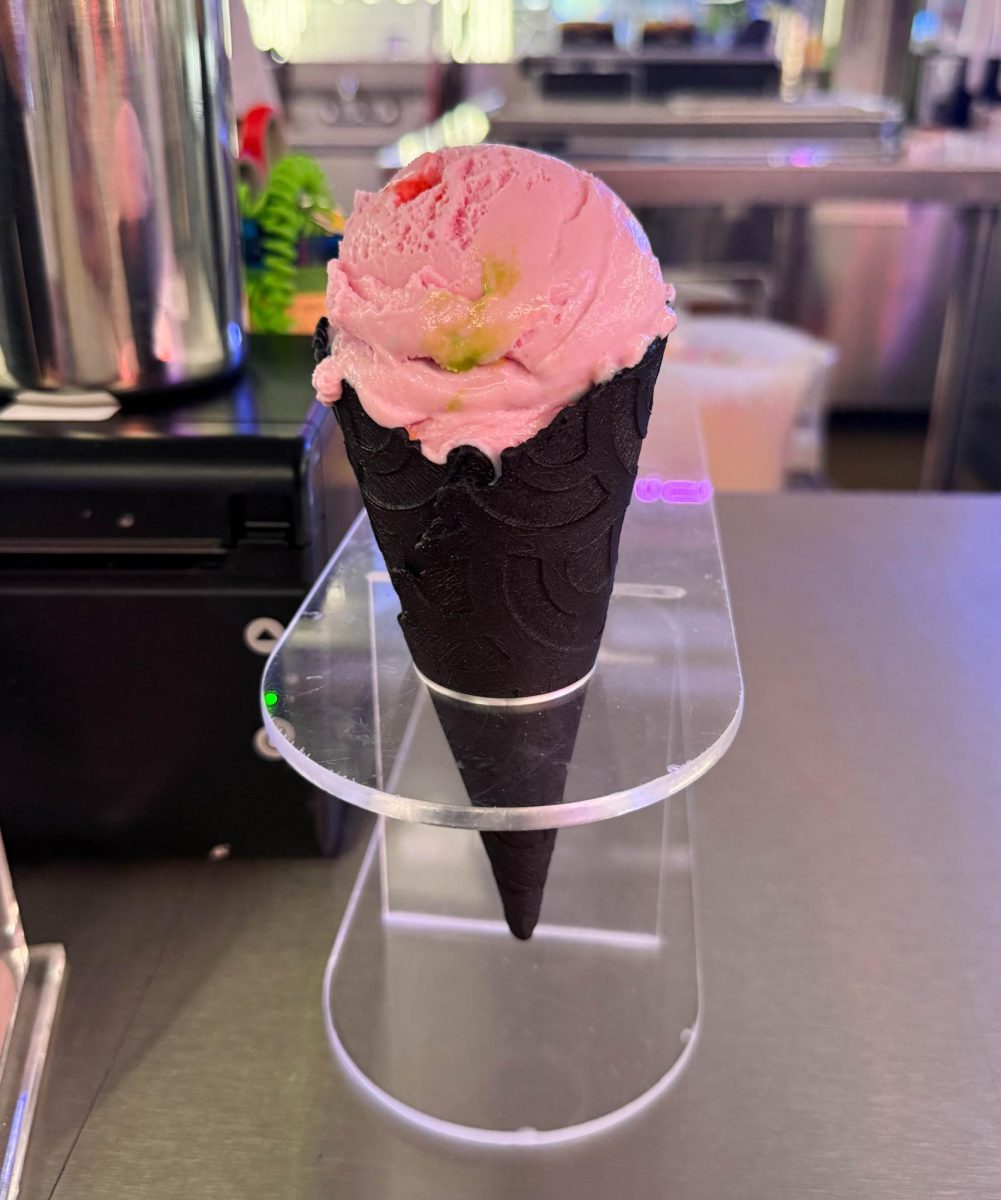
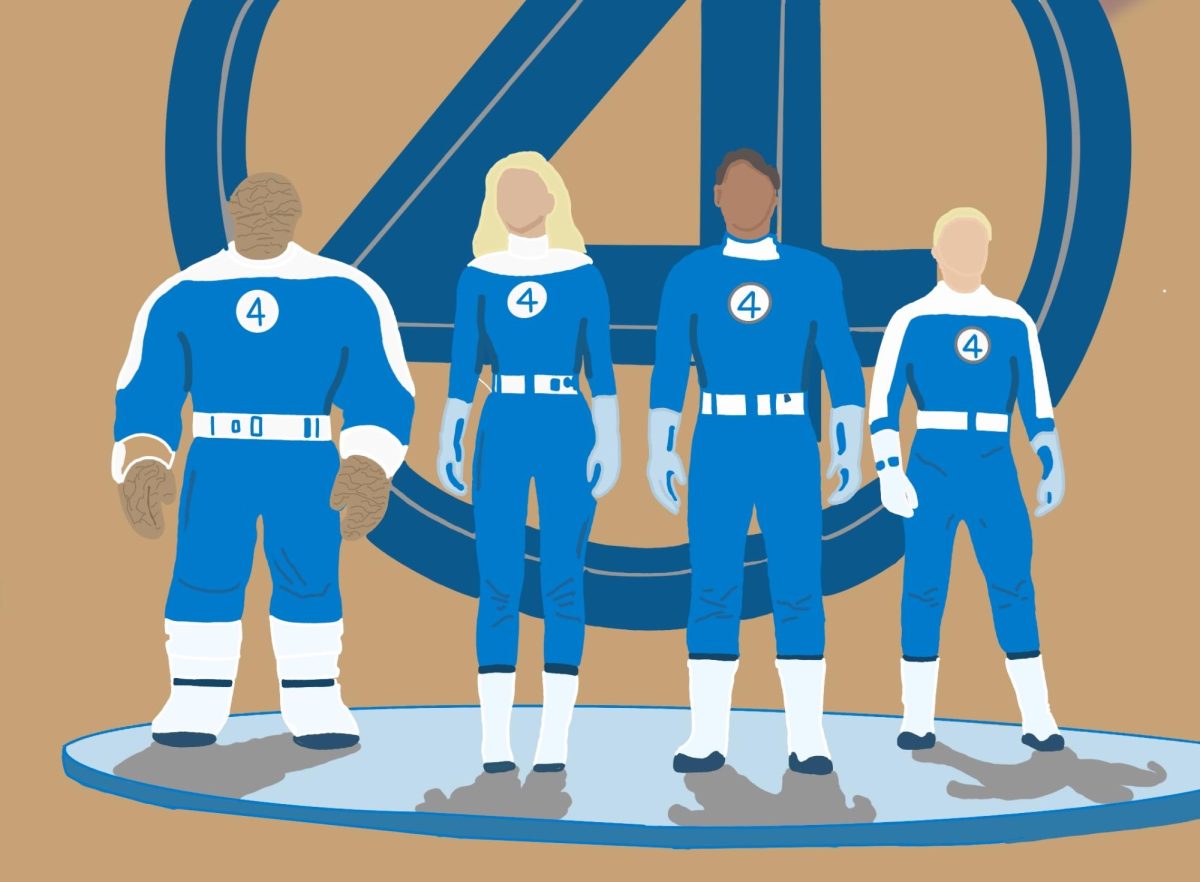
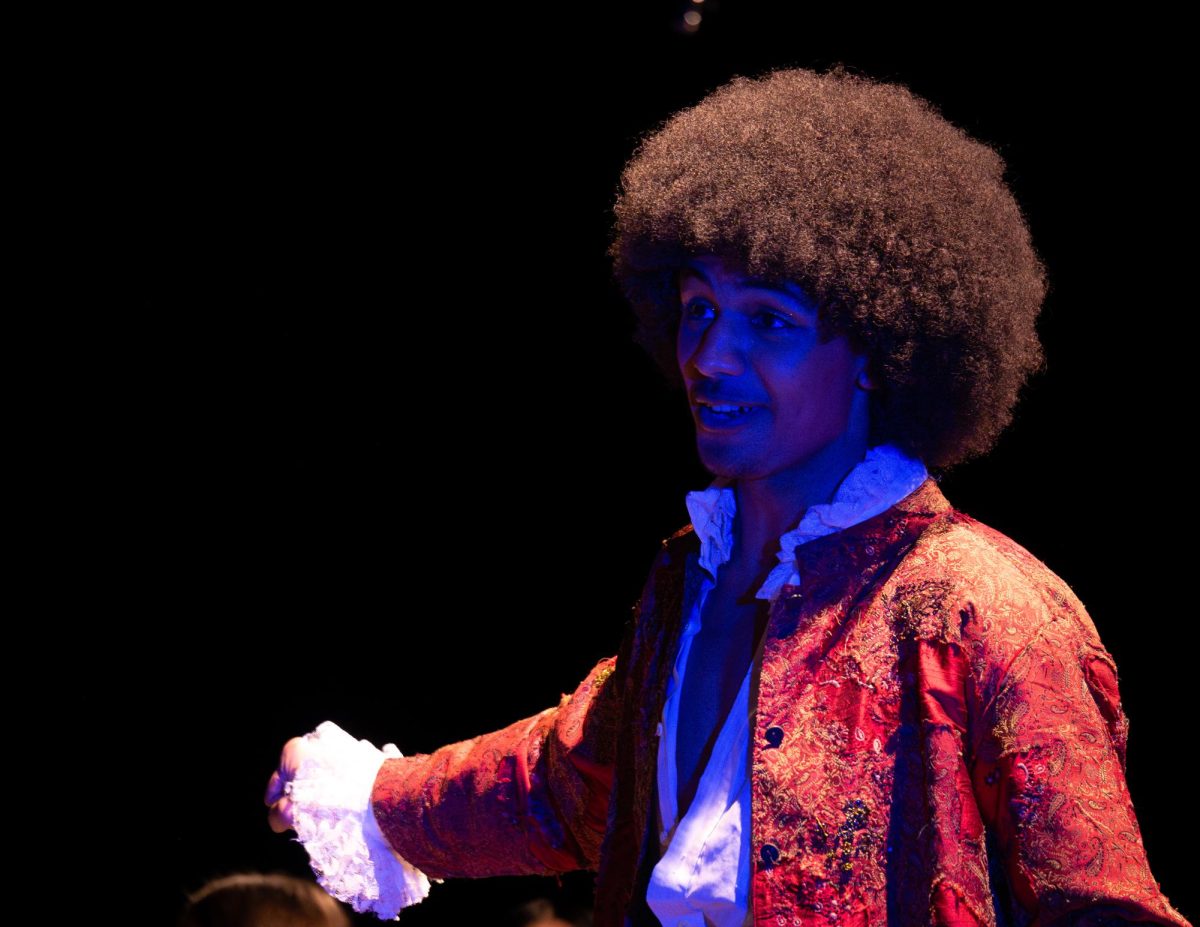
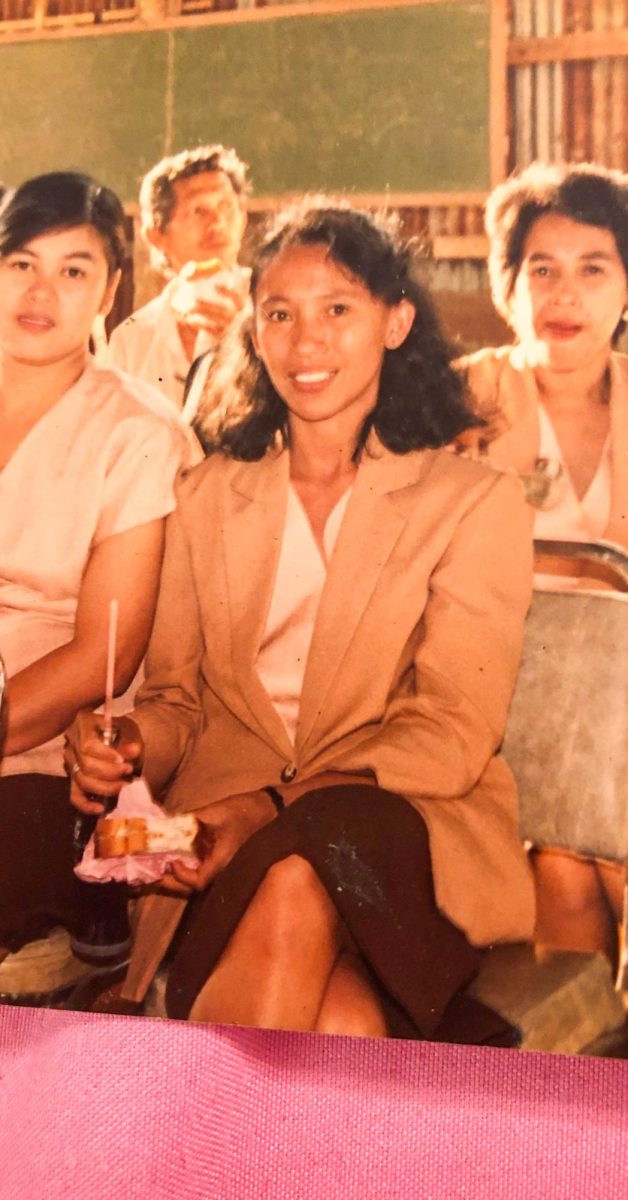
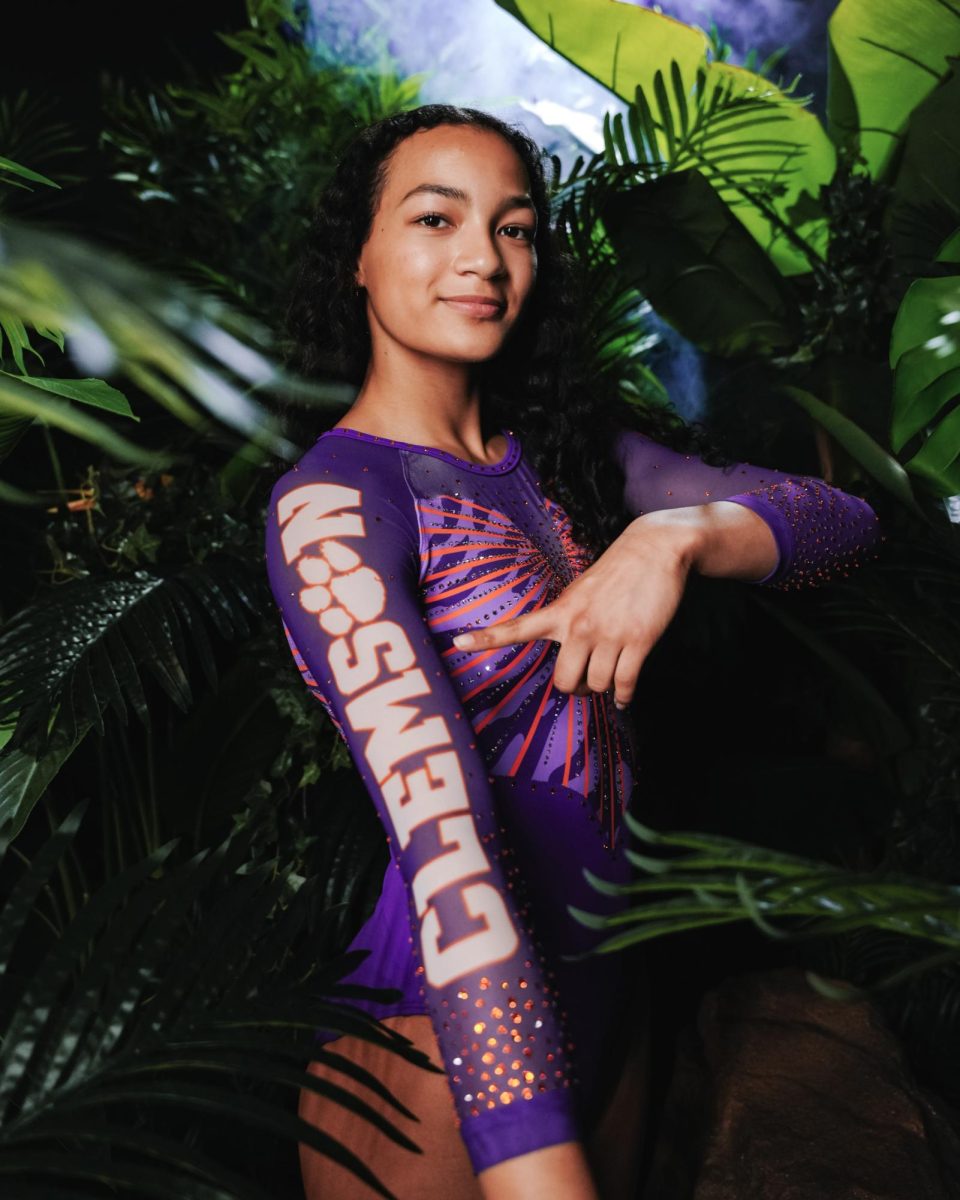
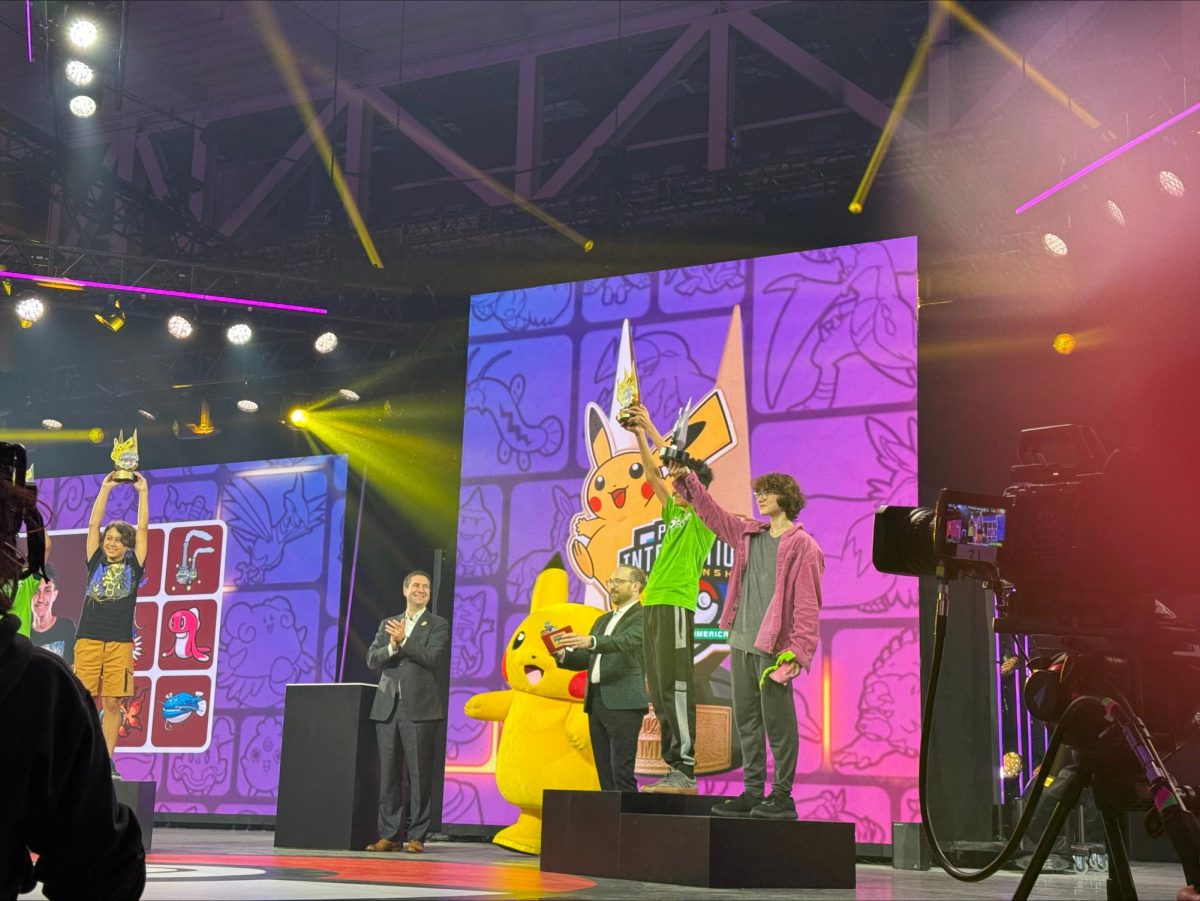
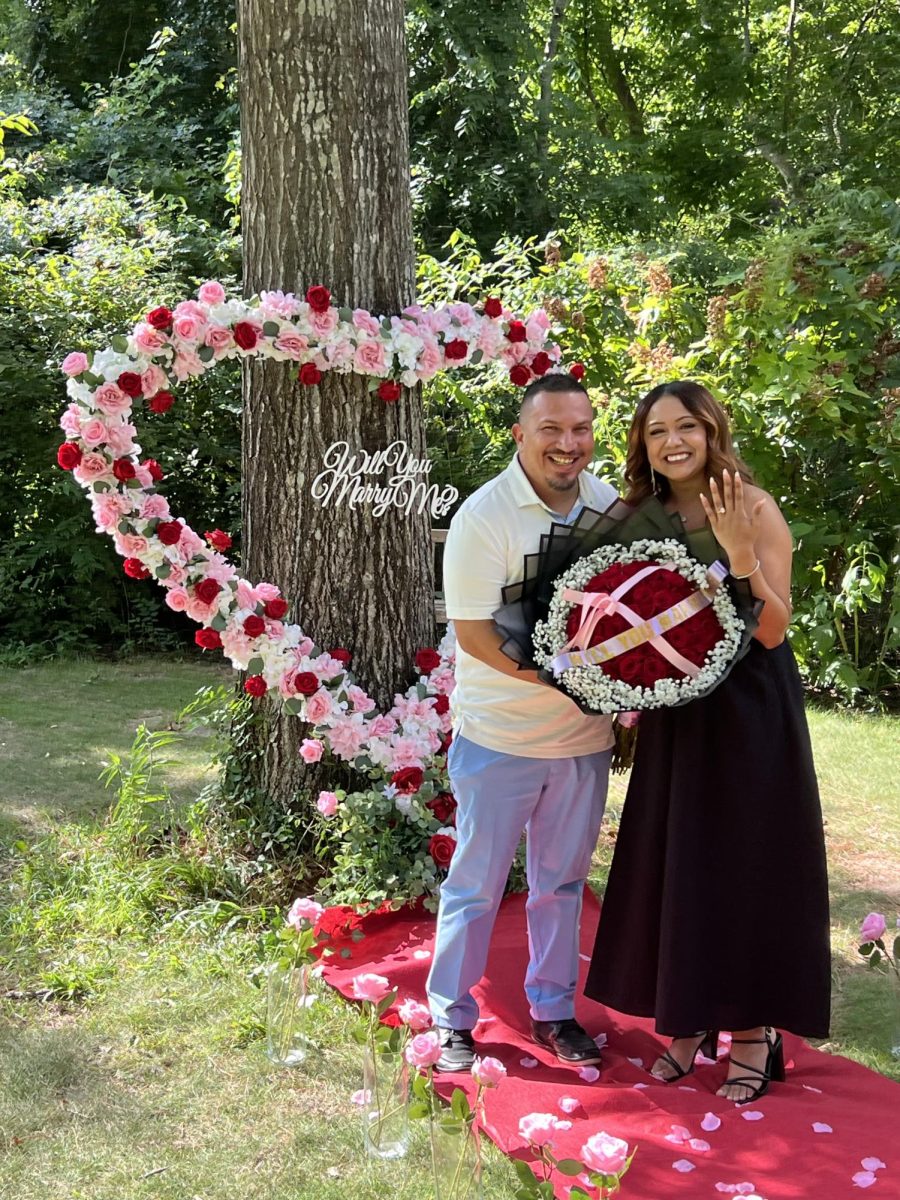
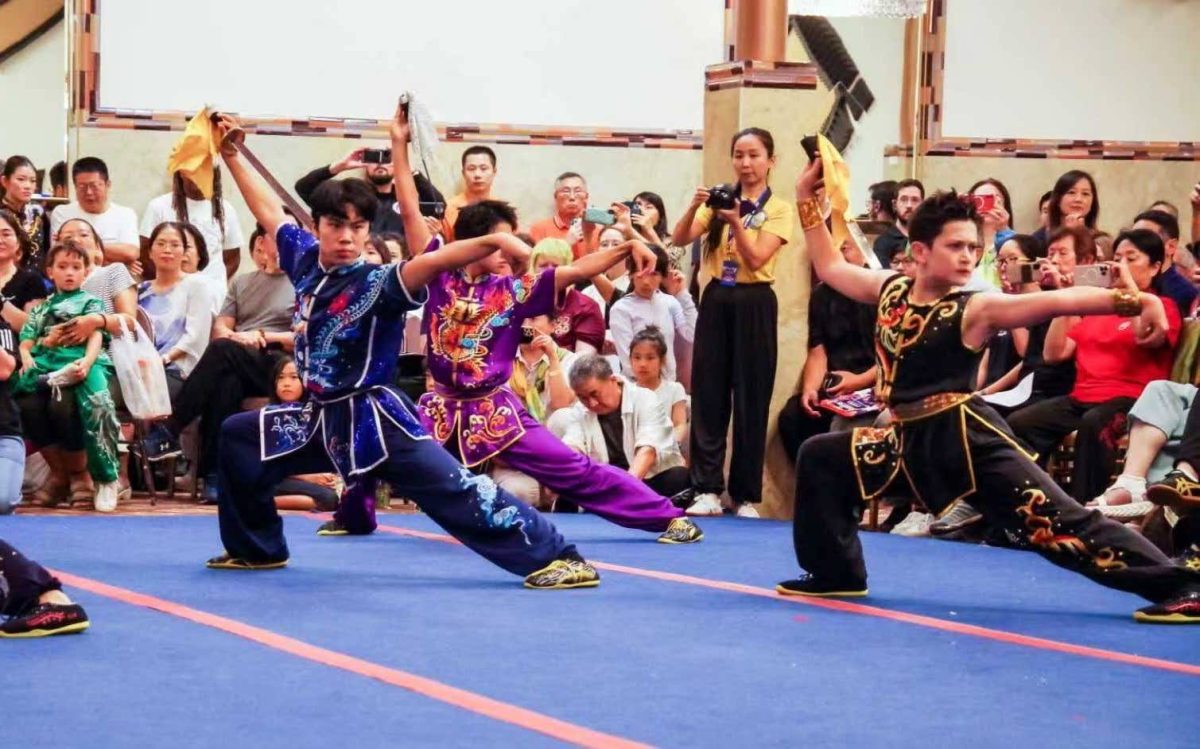

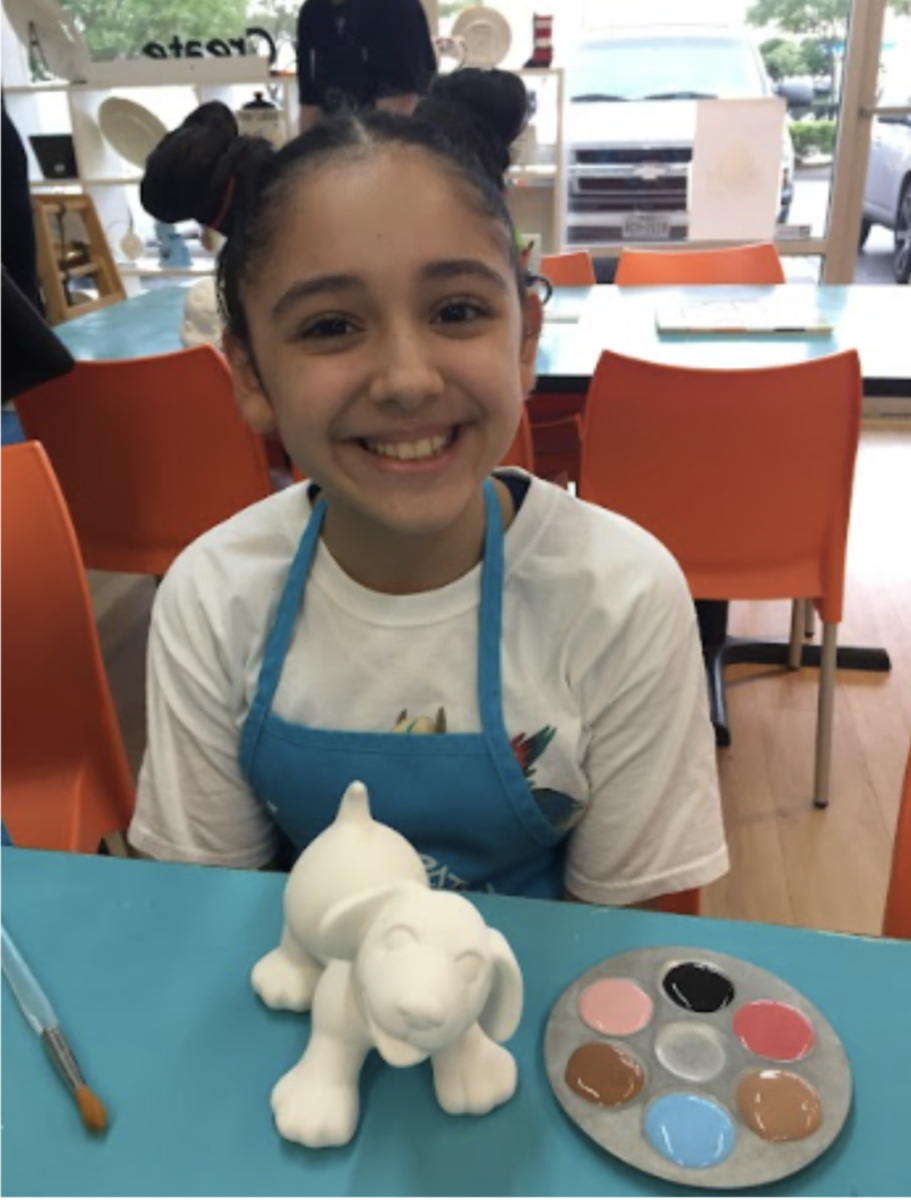
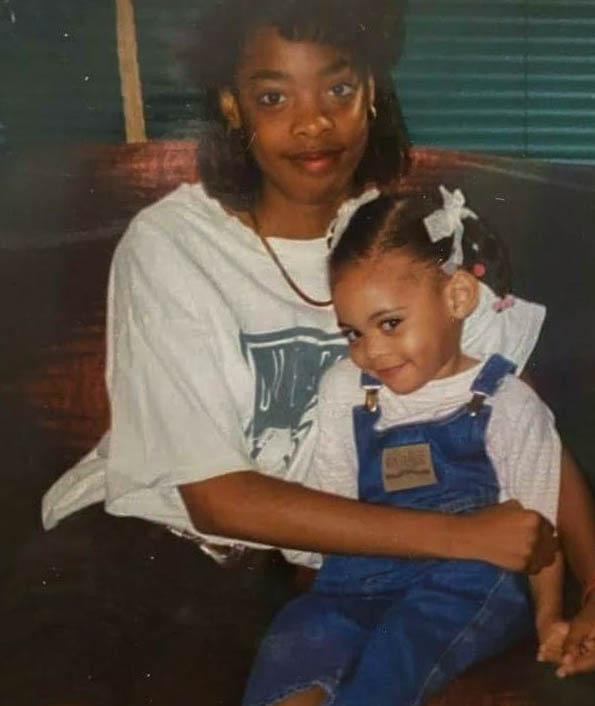
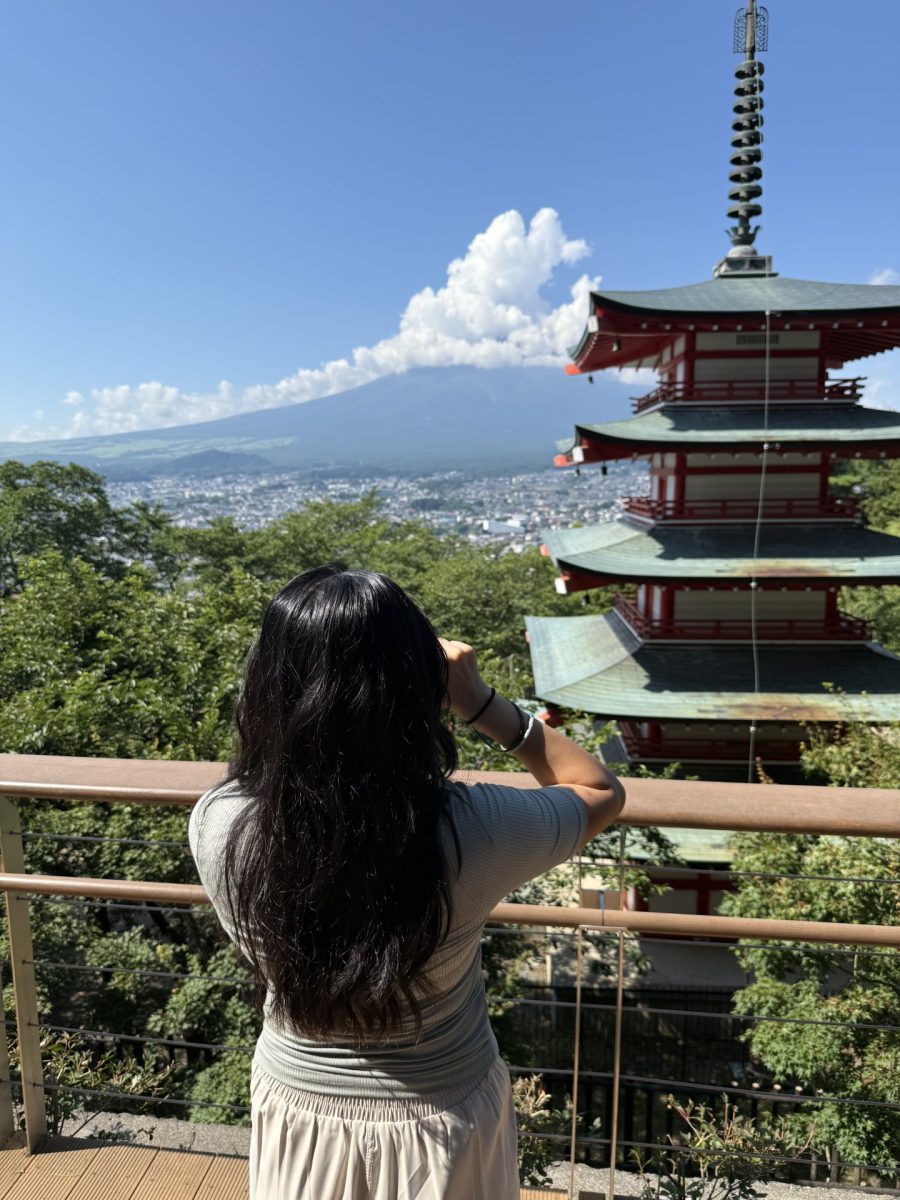

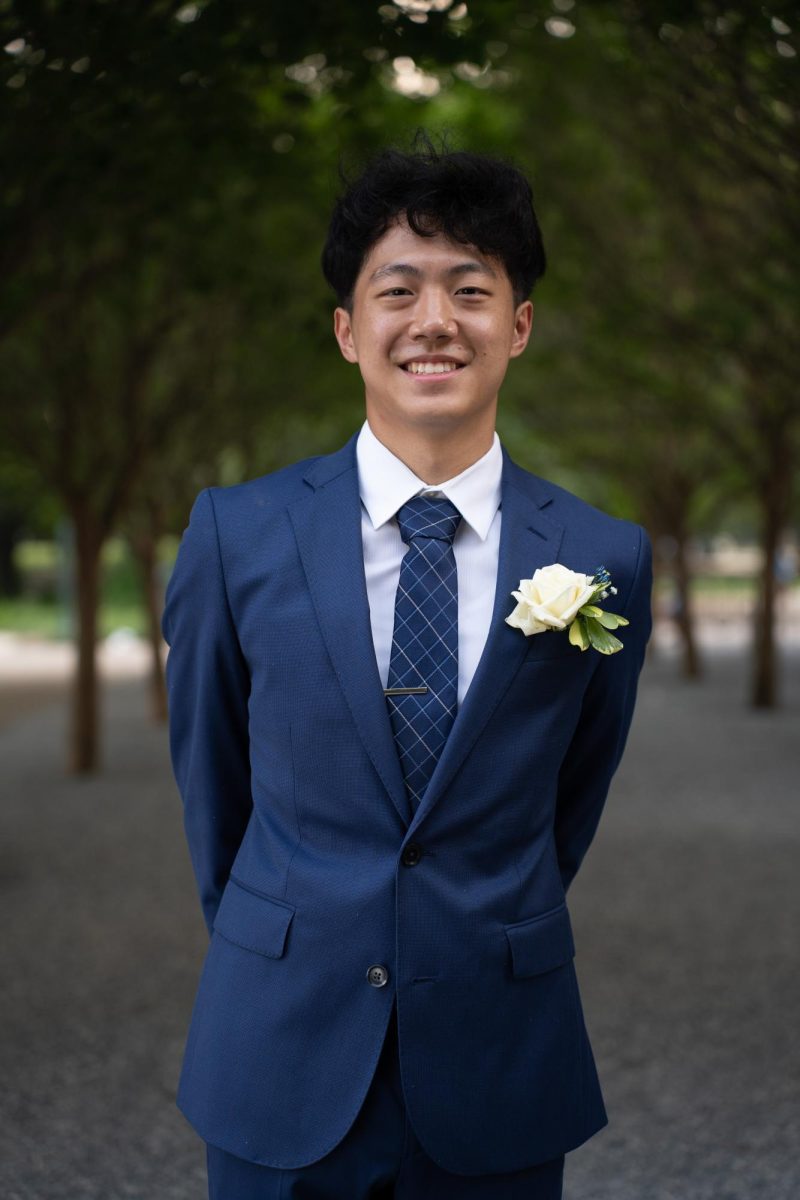

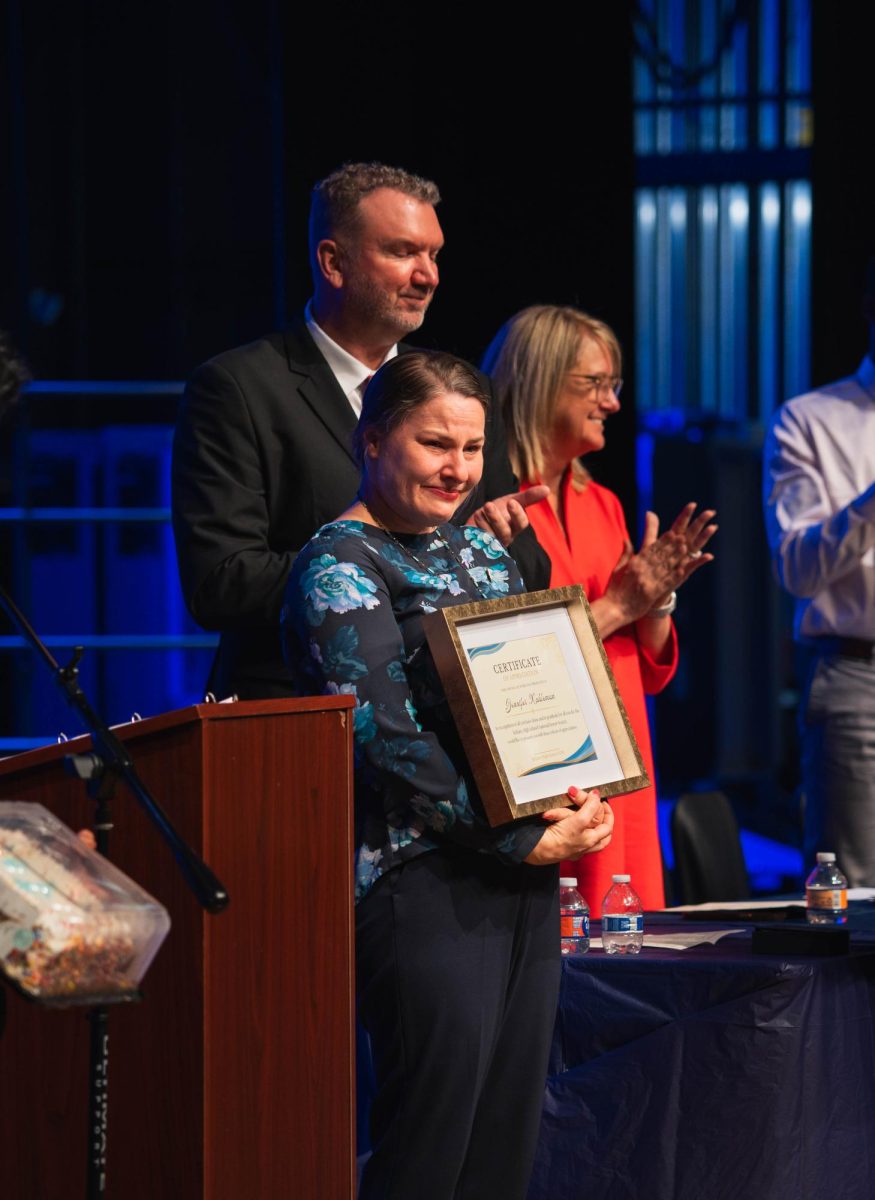
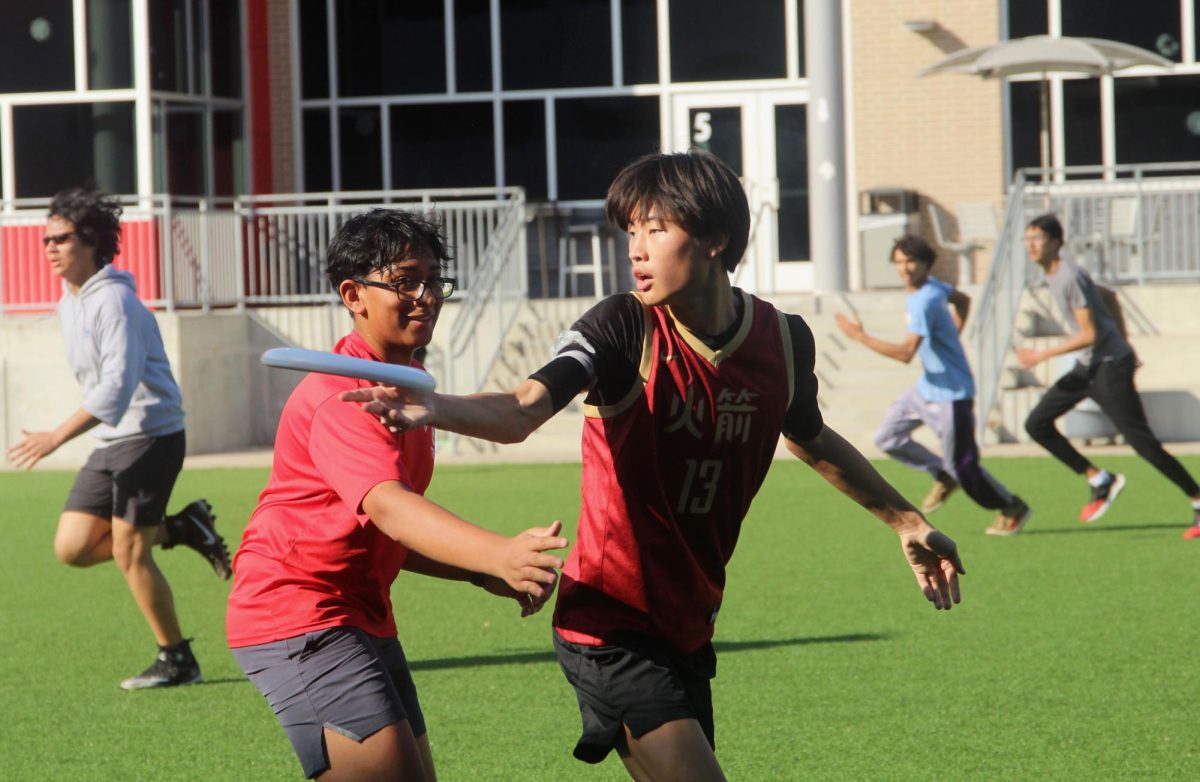
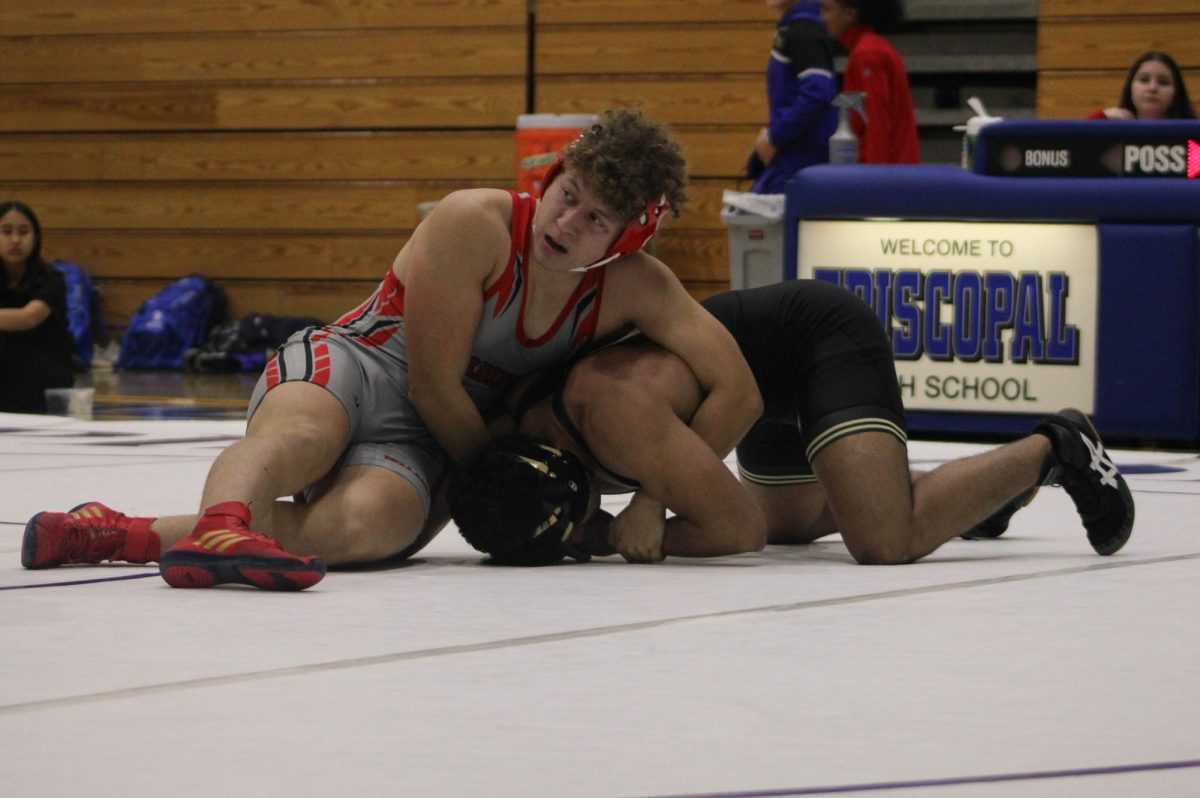
Sophia Sorena • Sep 8, 2025 at 6:28 pm
I loved being in Alice in Wonderland and it was interesting to see how to show went in the perspective on my former directors.
Hannah • May 27, 2025 at 1:40 pm
WOW THIS IS MY FAVORITE STORY EVER
Emily Brams • May 22, 2025 at 11:48 am
I love this story! They worked so hard on this play, glad to see it got some recognition!!!
Kayla Boffone • May 21, 2025 at 11:52 am
This was such a great piece. Thank you for thoughtfully sharing the process that Emma and Daniel went through directing Alice this spring! It was such an incredible show and I couldn’t be prouder to work with these two brilliant directors. They have bright futures ahead of them 🙂
Allison Underhill • May 21, 2025 at 11:49 am
And I’m STILL bubbling over with pride. Wonderful job, Claire and Davis on capturing the magic of this production process. Amazing article! 10/10!
Alia Hassan • May 21, 2025 at 6:32 am
great story guys!!